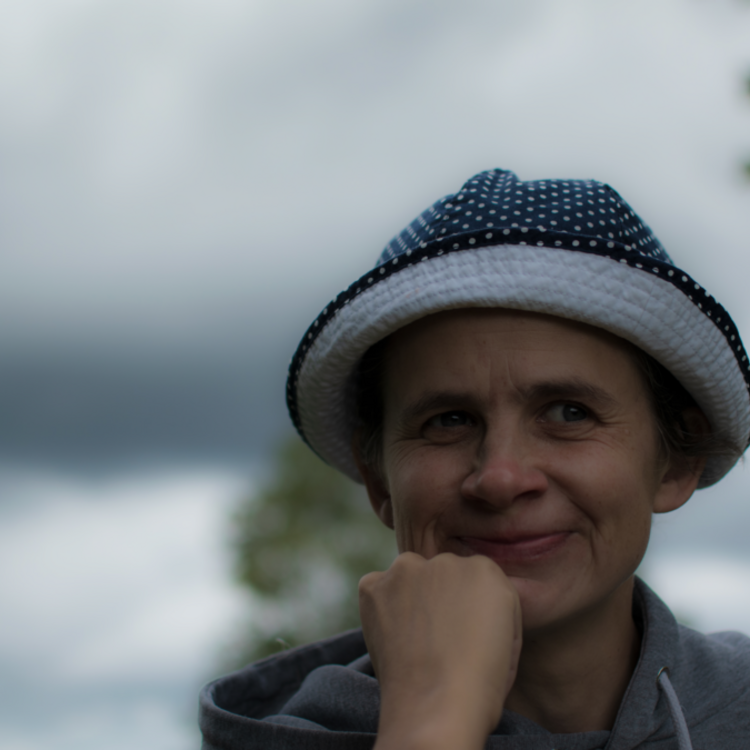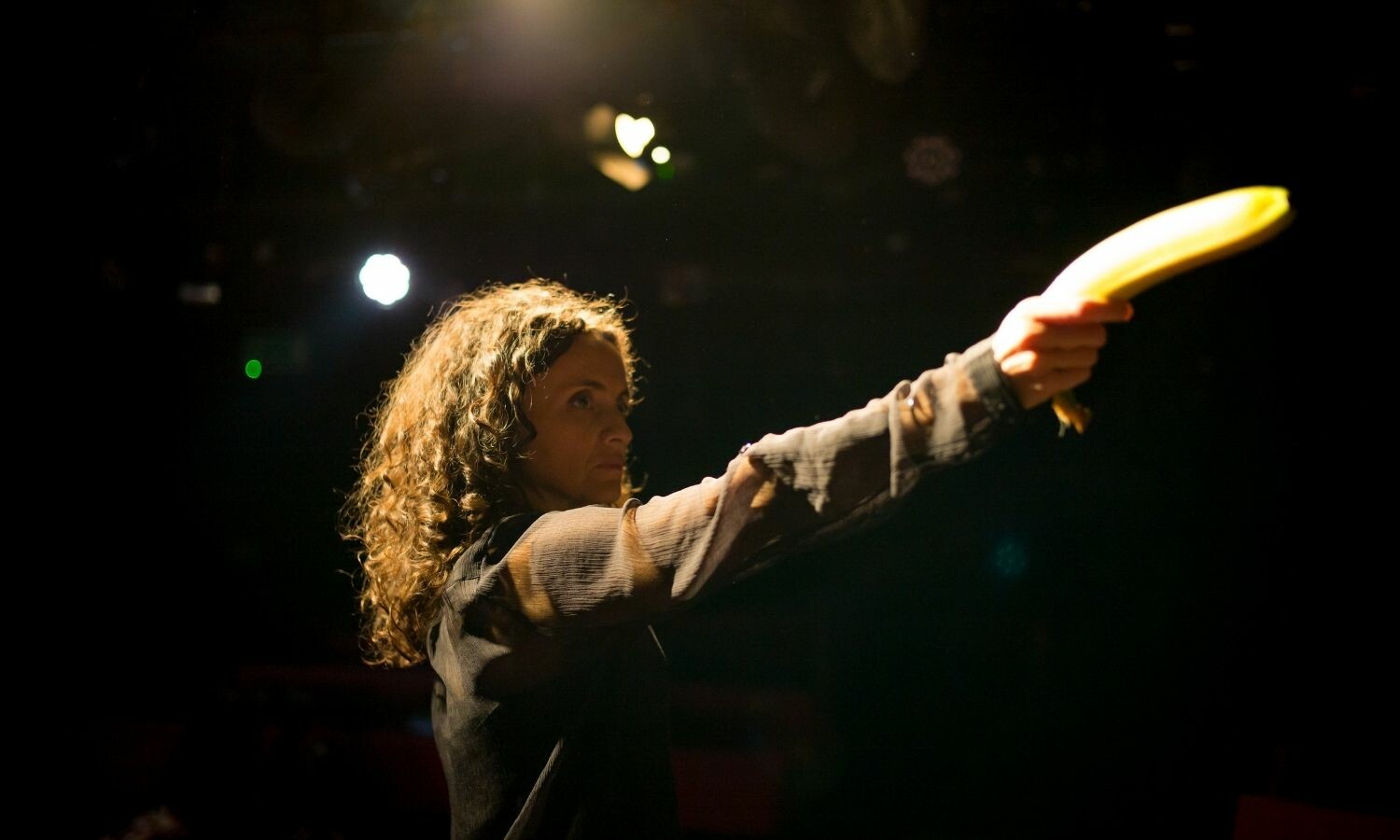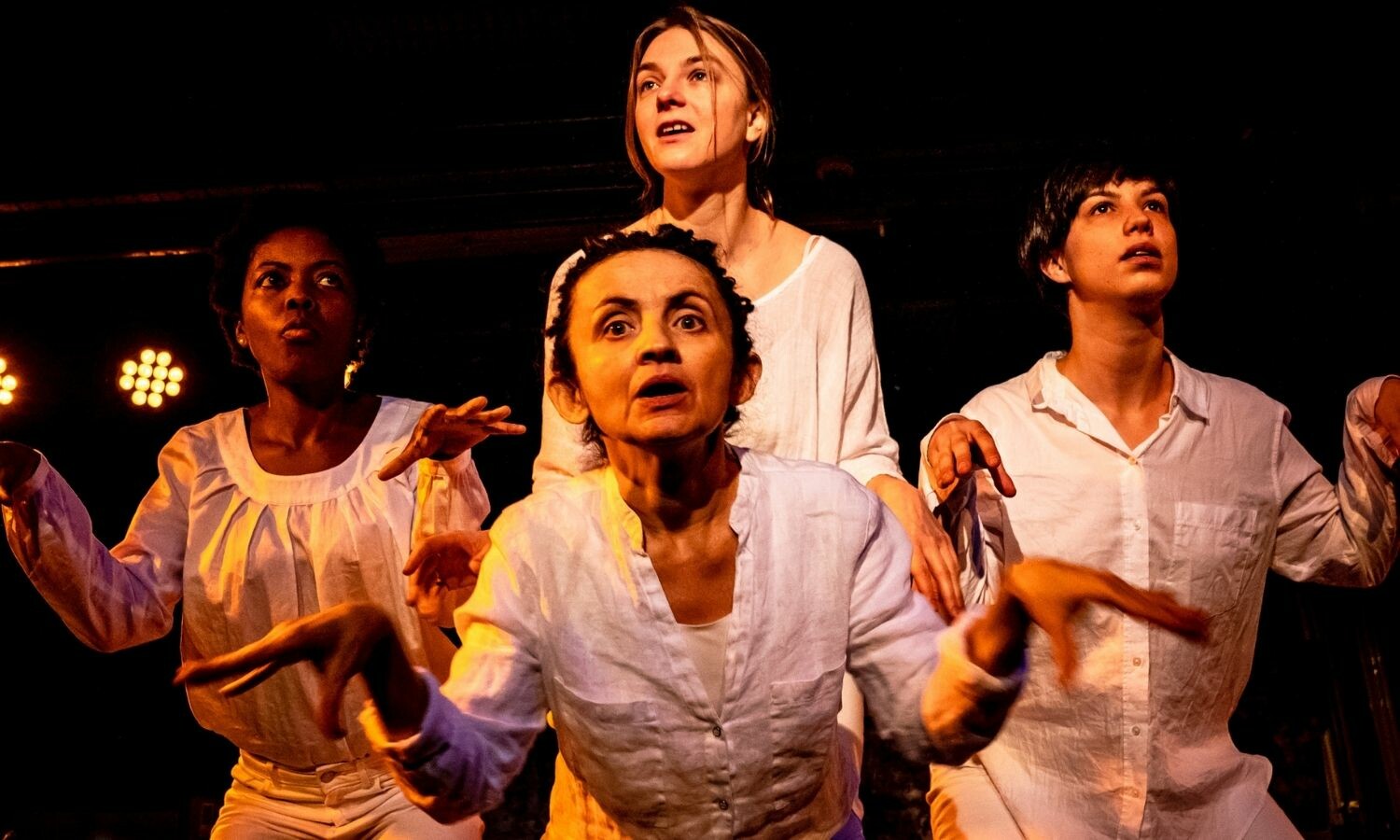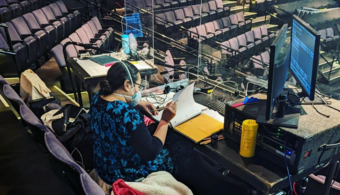Lara Parmiani was born in Italy but has been living and working in London for twenty years as an actor, dramaturg, director, and voiceover artist. In 2010, Lara created LegalAliens Theatre with associate Becka McFadden and other migrant women artists based in London, where productions have included the English premieres of The Return by Sergio Pierattini, Poker Face by Petr Kolečko and Closed Lands by Simon Grangeat. A recent podcast series, Things I Am Not, comprising of ten original fifteen-minute-long monologues, was written and performed during lockdown by female migrants who explore their living experiences in the UK. Lara is also a co-founder of Migrants in Theatre (MIT). I met up with Lara to discuss the migrant woman experience in Britain and its representation, or lack thereof, on British stages.
verity healey: How has the UK theatre sector changed in the twenty years you’ve been here and how similar are the problems from what you encountered when you first arrived?
Lara Parmiani: When I came in ’97 it was cool Britannia—those early Tony Blair years where we were taken in by the illusion that things can only get better. Now, when I have conversations with Italian migrants who moved here in the Tory years leading to Brexit, they see Britain as mainly hostile.
British theatre was more interesting at the time. Yes it was less diverse and very white and male, so in that sense there has been very important progress, but this progress has not gone hand in hand with an artistic renaissance. On the contrary, the 2008 recession and a lot of concurring factors contributed to a certain uber-capitalist evolution. Or involution, if, like me, you don’t think art should be considered simply a product to sell.
Theatre has become dominated by the commercial sector with the West End being the model to aspire to. I have nothing against private enterprises making billions by casting Hollywood stars or producing spectacular musicals as long as there’s a parallel space populated by venues focused on creating theatre as art, as culture, as a space for artists to experiment, to radically rethink theatre aesthetics and the role of theatre itself. And for communities to get together and watch something that can have an impact on their lives.
There is something broken in a model when even state-funded theatres, National Portfolio Organizations, middle-scale theatres, and even fringe venues are under such financial pressure that they are forced to place sales before anything else. With London becoming top real estate, where are the spaces to experiment, encourage new voices, involve new communities?
Enter Brexit, and the fear of not looking “British” enough... At the same time, British theatre is playing it safe and is also trying to prove its “diversity” credentials, but the two things can rarely go together. For real diversity to happen one can’t be scared of radical change. Personally, I think in the past ten years, British theatre has been losing track of its own identity and what makes it unique, and this has lessened the argument for it to be funded during the pandemic.
During lockdown, when theatres closed, I kept hearing famous celebrities and government ministers saying, “We must support theatres because of the West End’s commercial value and because it is where actors can ‘flex their muscles’ before going on to big film careers.” No. Theatres aren’t a prep school for wannabe celebrities. And they are not just an industry like tourism. They should be funded as culture. Like libraries. Do libraries make money? No. But they are important for culture and the community.
We have become a country where arts and culture are now seen as something elitist, something not for “real people,” and where anything international or mentioning the word “migrant” is seen with suspicion or even hostility.
verity: This “hostile” environment must make it harder, as a woman-led migrant company, to pitch international theatre to venues outside London?
Lara: Brexit has created this dichotomy of “international elitist London” versus “the real people of England.” Audiences get underestimated by venues that are often terrified of presenting anything that diverges from what they think their traditional base is looking for. But when you go beyond the “us against them” narrative and create shows that are actually engaging, people do tune in and love them, even if they are something new.
Programmers are terrified anything perceived as “foreign” won’t have an audience—“Who is your audience?” seems to be the only question. But venues should know who their audience is and be able to market a show to them. That’s the other thing that happens in this country: theatres can’t seem to get loyal audiences to see all of their productions anymore. I think it’s because there is a disconnect between theatres and their communities.
We have become a country where arts and culture are now seen as something elitist, something not for “real people,” and where anything international or mentioning the word “migrant” is seen with suspicion or even hostility.
verity: You set up LegalAliens with other migrant women. What were the challenges you faced at first?
Lara: When we started up ten years ago we were seen as an oddity. One of our first plays, The Return by Sergio Pierattini, was set in Northern Italy and we cast four Italian actors who spoke English with a genuine Northern Italian accent. It blew people’s minds.
Through the years we’ve developed a methodology of translation where not only do we want the translator in the rehearsal room to always have direct access to the original text, but where we refrain from anglicizing the setting, the accent, and the context in order to make plays “less foreign.” We want the original language, culture, and context of the play to be there and for the translation to be “minimalistic” without ever pretending the story we’re telling isn’t set in another country.
Often we keep original words in if they work better. And our actors have accents. Any accent. I know this makes us less “sellable.” Many programmers and artistic directors are incredibly skeptical and they seem unable to “trust” the professionalism of a company made entirely of mainly migrant women actors. As if we weren’t professional somehow, as if their audiences couldn’t accept a show where foreign accents are heard from beginning to end. It’s such a colonial attitude because the same venues don’t have a problem producing plays set in the Appalachian Mountains or in Australia, with actors speaking with those accents. But they are “variations of English.” To a certain extent, they’re not really foreign.
It’s funny because Peter Brook began casting actors irrespective of their accent, ethnicity, or nationality back in the eighties. He’s hailed as a genius, yet nobody in the UK has really followed his example. This obviously means abandoning pure realism and creating a more imaginative theatre.
It’s undeniable that when you present something different, it makes you even more of an outsider. And the more I try to make work here the more I realize theatre in this country is as closed a shop as it is in Italy, it’s just less obvious and more systemic.















Comments
The article is just the start of the conversation—we want to know what you think about this subject, too! HowlRound is a space for knowledge-sharing, and we welcome spirited, thoughtful, and on-topic dialogue. Find our full comments policy here